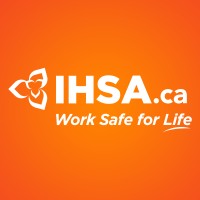Propane is widely used in construction for a variety of everyday tasks, including flame cutting, space heating, heat or melt materials, and to power internal combustion engines. It is important to understand the hazards of propane and to know the procedures and controls

Propane is widely used in construction for a variety of everyday tasks, including flame cutting, space heating, heat or melt materials, and to power internal combustion engines. It is important to understand the hazards of propane and to know the procedures and controls necessary to minimize those hazards.
Special training is required to work safely with propane and propane-powered equipment. IHSA's Propane in Construction training program is designed to provide the information and hands-on practice necessary for construction workers to be able to safely connect, activate, and disconnect heaters, torches, and propane-powered equipment of less than 400,000 Btu/h, in accordance with the training requirements of the Technical Standards and Safety Authority (TSSA).
Successful participants will receive a record of training card with a three-year expiry.
Program Content
Propane hazards
Legislation and safe practice
Connection, activation, and disconnection of propane
Who Should Attend?
Anyone who works with or around propane.
Note
If you require certification in propane, please be advised that the correct record of training relies on the type of equipment and/or appliance being used.
If you use torches and propane-fired tar pot heaters/kettles IHSA’s Propane in Roofing is the correct course to obtain the required Record of Training; TSSA Roofing Equipment Operator (RE-O). If additional Information is required please contact a Customer Service Representative.
Prerequisites
There are no prerequisites for this course.
Personal Protective Equipment / What to Bring
Each participant is expected to bring their own CSA-approved head, foot, and eye protection as well as neoprene gloves. Participants will also be required to wear a long-sleeved shirt and long pants and be dressed for outdoor activity.
The participant will not be permitted to participate in the course if they do not bring the noted personal protective equipment and clothing.
Participants also need to bring valid photo I.D. to confirm registration.
Learning Evaluation
The participant must meet the following evaluation requirements in order to obtain a certificate of completion for this program:
Participant Course Evaluation
At the end of the training, participants will have the opportunity to evaluate and provide comments about the training they received.
The Infrastructure Health and Safety Association (IHSA) is Ontario’s trusted health and safety resource. Our goal is to improve the lives of Ontario workers. We provide the resources and training that control and eliminate safety hazards in work environments involving high-risk activities.
At IHSA we have always maintained a standard of excellence. We are proud of our role in helping to make Ontario one of the safest places in the world to work.
Our focus is on workers and keeping our promise to provide them with the tools to Work Safe for Life. As part of Ontario's health and safety system, we are recognized by the Ministry of Labour, Immigration, Training and Skills Development, the Ministry of Colleges and Universities, Ministry of Transportation, and the Workplace Safety and Insurance Board as designated trainers and consultants. So, you can be sure that the training you get from IHSA meets regulatory requirements and compliance standards.
© 2025 coursetakers.com All Rights Reserved. Terms and Conditions of use | Privacy Policy